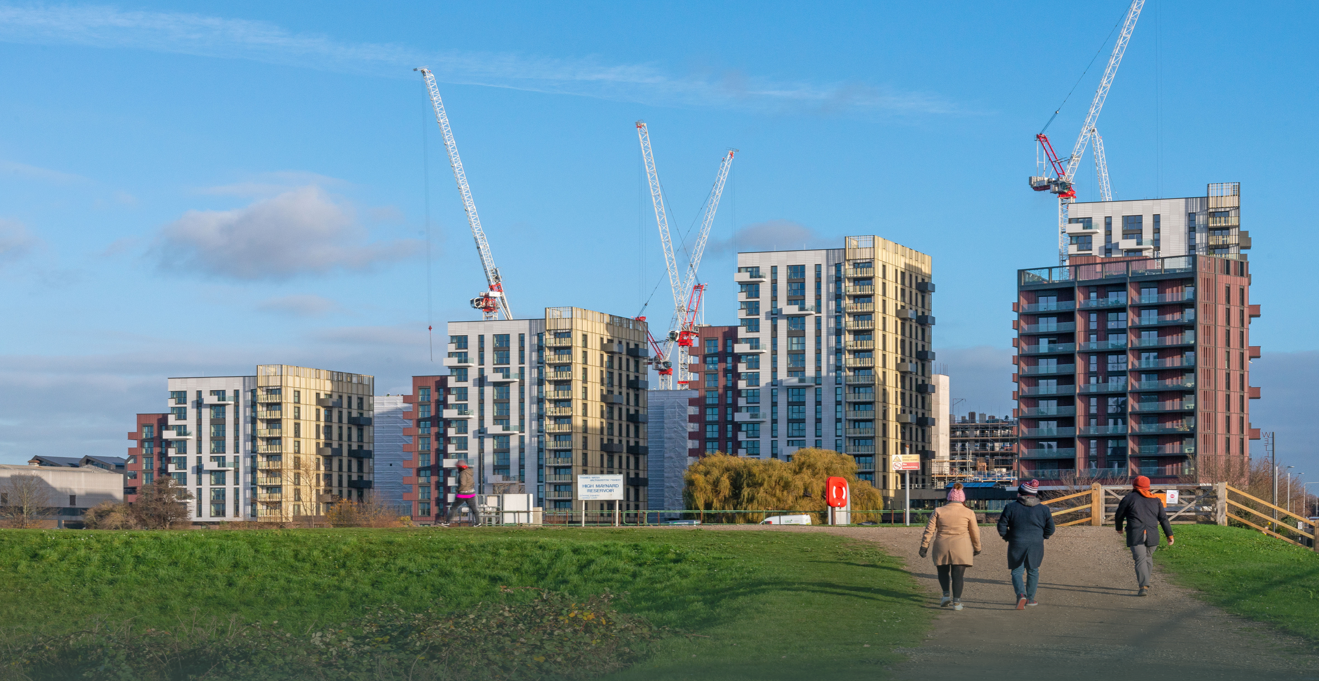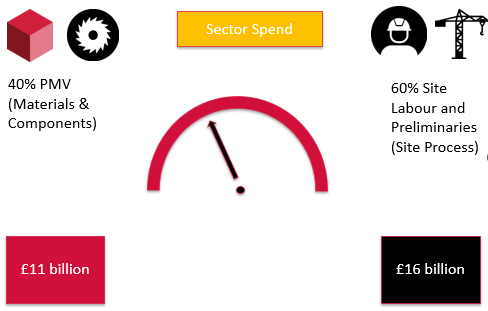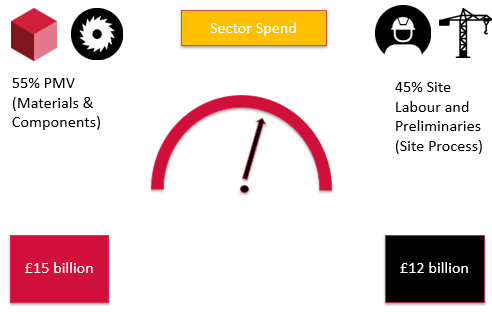
Submitted by Sevcan Birdal on Thu, 07/07/2022 - 10:47
The Cambridge Centre for Housing and Planning Research, on behalf of CDBB, hosted a stakeholder round table discussion about Pre-Manufactured Value (PMV) on 27th April 2022. As a keynote speaker, Mark Farmer, the UK Government’s Modern Methods of Construction (MMC) Champion for Housing and founding director and CEO of Cast Consultancy shared his observations about PMV with attendees.
Pre-manufacturing is the inclusive term for all processes encompassed by construction materials, components, sub-assembly manufacture, consolidation and pre-assembly prior to final movement and installation at the construction workplace. The term, for the avoidance of doubt, can include offsite, near-site and on-site temporary factory-led processes.
On the other hand, PMV can be defined as the percentage measure of the element of a construction project’s cost that is derived prior to any further assembly or process change made in situ at the final site. Based on this definition, it can be said that PMV is an open-source definition and anyone with commercial expertise can estimate and calculate it and create tools for the market and it enables organisations to adapt the design, supply chain and construction choices to deliver productive, predictable, safer and higher quality homes and buildings.
At the beginning of his speech, Mr Farmer informed those gathered why the PMV approach needs to be used in the construction sector and discussed and compared PMV’s current and future potential impact on residential construction cost and efficiency. He highlighted that while failing to explore opportunities to optimise PMV will result in increasing waste, delivery risks and exposure to wage inflation, incremental optimisation of PMV would improve labour resource efficiency and resilience, as well as creating a higher likelihood of securing improved wider outcomes. In other words, a greater application of the PMV approach ends up with more output for the same cost (which can be seen in Figure 1 and Figure 2).
Figure 1
Figure 2
Additionally, Mr Farmer discussed the potential macro market impact of industry-wide aggregation of the PMV approach on the residential market. He informed attendees that large scale adoption of the PMV approach would help to increase innovation, diversification, and additionality in the residential market, which are also all current government housing policy imperatives.
Mr Farmer shared some of the misunderstandings and concerns raised by the sector about PMV, including the significant misunderstandings between ‘maximising’ and ‘optimising’ PMV and widespread concerns that the approach does not capture poor productivity, commercial risk and quality issues in an offsite environment. Thus, there is a need for the PMV approach to sit within a wider assessment matrix.
Finally, Mr Farmer talked about the observations from early industry engagement with the PMV concept. He explained that resistance to the PMV approach was expected, because it was new and because adopting this approach requires a different way of thinking, as well as overcoming major education and awareness barriers. Combatting resistance through reliable datasets and evidence is required to build the credibility of ‘why’ PMV.
You can watch the recording of the roundtable here
You can find out more about the Cambridge Centre for Housing and Planning Research's PMV research here


